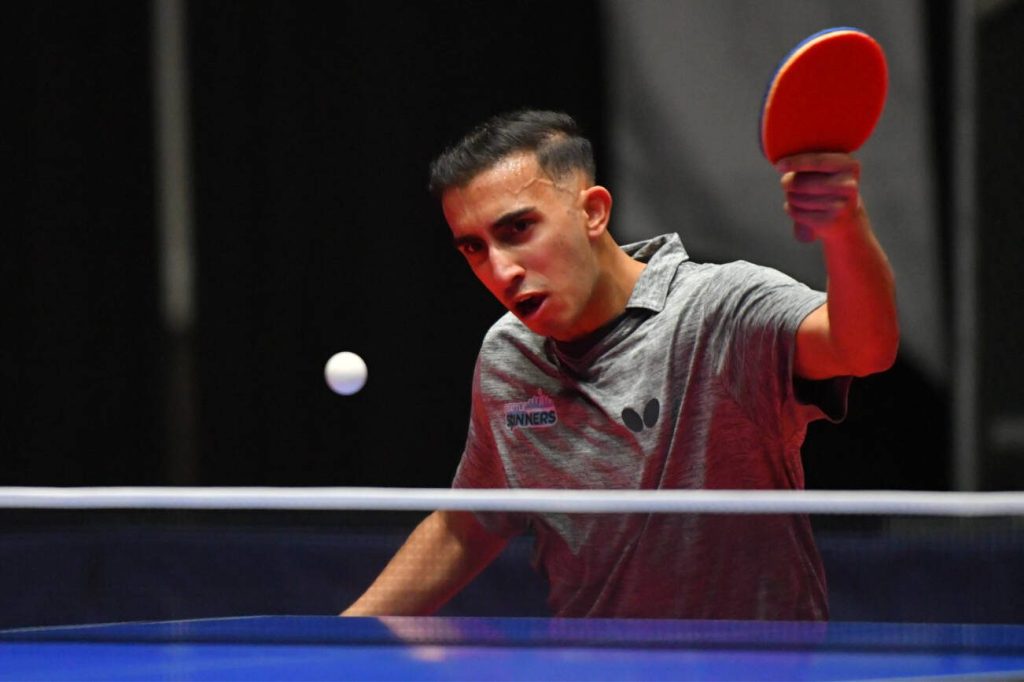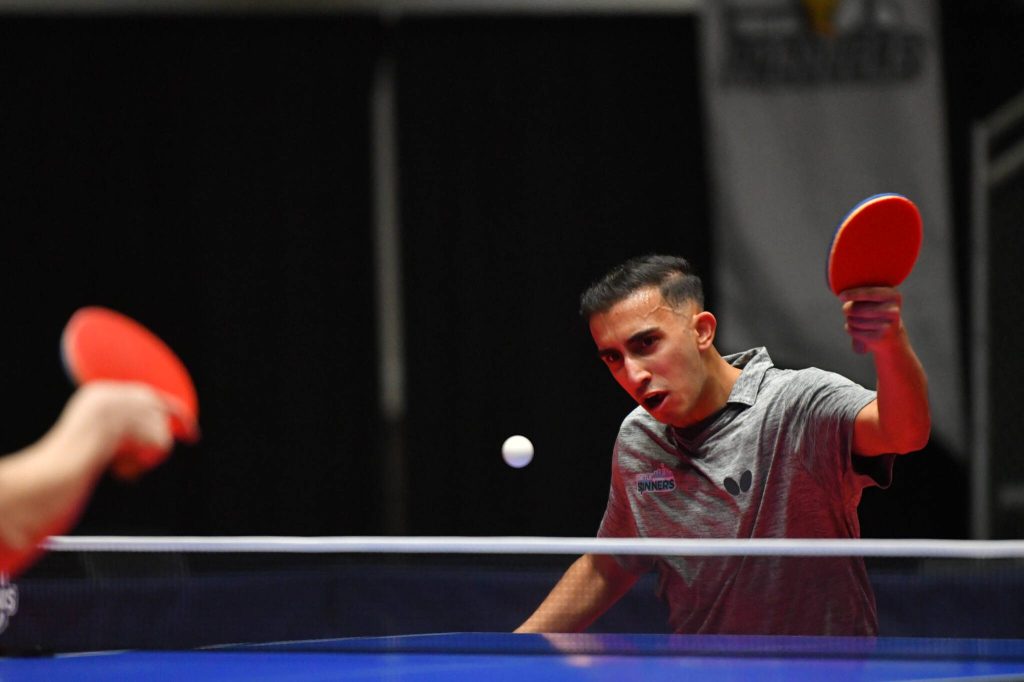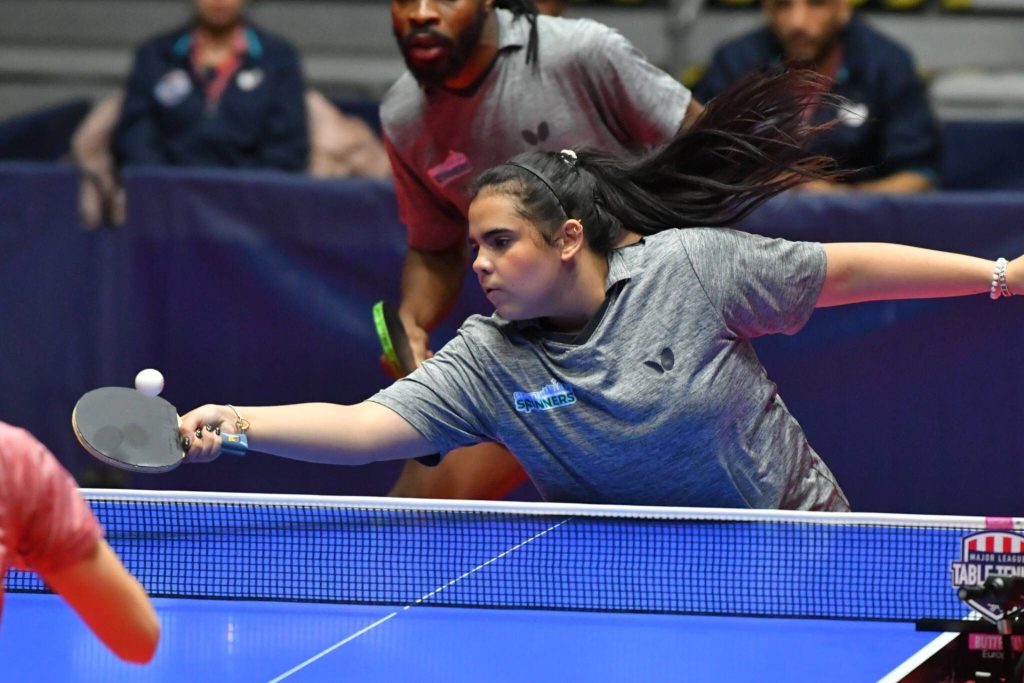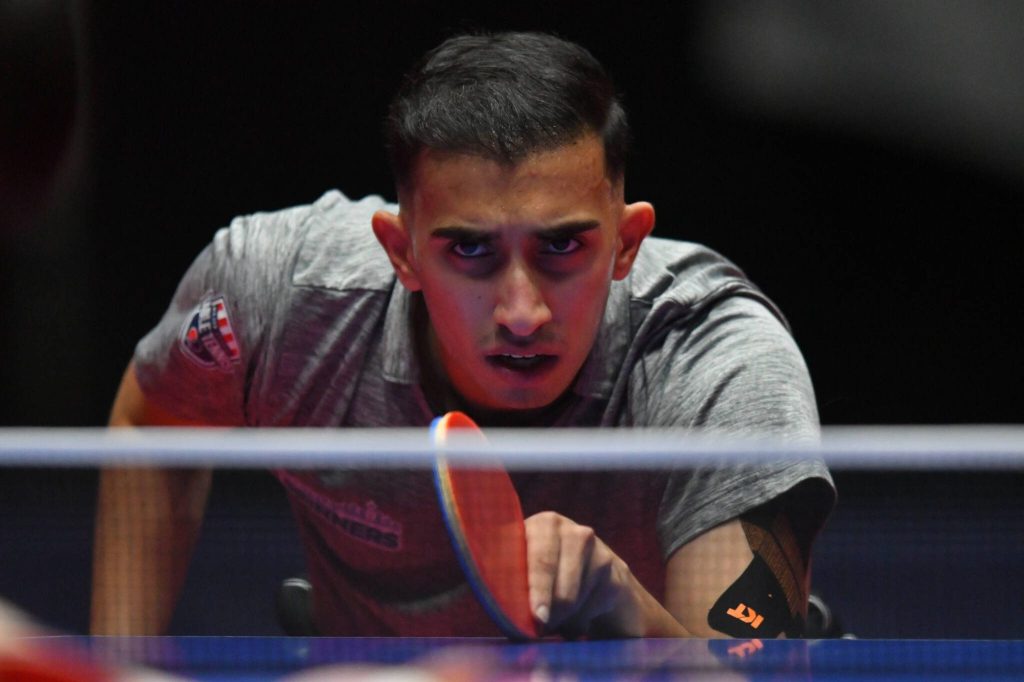New pro table tennis league set for 1st stop in Everett
Published 1:30 am Friday, February 16, 2024




EVERETT — What is the difference between table tennis and ping pong?
Technically, they’re the same game: played on a 9×5-foot wooden table with a 6-inch net spanning the middle; players using rubber-covered wooden paddles to hit a hollow celluloid ball over the net to their opponents.
But spiritually there’s a vast chasm between the two. “Ping pong” is played recreationally in the basement with players struggling just to get the ball to land on the table’s surface. “Table tennis” is played by Olympic-caliber athletes with a power, speed and grace that recreational players can only dream of achieving.
And table tennis is what’s coming to Angel of the Winds Arena.
Major League Table Tennis, America’s first ever professional table tennis league, stops through Everett next weekend when it holds a West Division showdown Friday through Sunday at Angel of the Winds.
This is the 11th event of Major League Table Tennis’s (MLTT) inaugural season. All four West Division teams — the Portland Paddlers, Texas Smash, Bay Area Blasters and host Seattle Spinners — will be on hand. Each of the three days features two team matches.
And the startup league is hoping to rally its way into the national consciousness.
“(MLTT’s first season) has gone quite well, to be honest,” said Nikhil Kumar, the two-time reigning U.S. men’s national champion and the Spinners’ first-round draft pick. “One of the things I’m happy about is that it actually came to fruition. Many times there’s been talk about starting a league in the U.S., and I was always skeptical because it never actually worked out, it was all talk. But Flint and the rest of his staff have done well to bring this to life.”
“Flint” refers to league founder Flint Lane. MLTT is the 57-year-old former tech entrepaneur’s brainchild. Lane was inspired when his wife gifted him a table tennis lesson from professional player David Zhuang for his 45th birthday. Then after Lane retired from running Billtrust in December of 2022, he decided to embark on a new adventure.
“I was retired for about a week-and-a-half, I’d played some golf and afterward we were hanging out with no agenda, talking about golf, talking about Bitcoin, and I was like, ‘Yeah, I can’t do this the rest of my life,’” Lane explained during a Zoom call from Naples, Florida. “So what else can I do? I was passionate about table tennis and kind of had an idea around it, but I didn’t really start thinking about it until January of 2023.
“Leagues like this exist in a dozen different countries, but no one tried to do it in the U.S.” Lane added. “I’ve been passionate about table tennis my whole life, I own two clubs, I play regularly. How is this not a pro sport in America? We have pro leagues for sports like pickleball, cornhole, tag, arm wrestling. Table tennis is an Olympic sport, we all play it as kids. How has no one tried this? We did some research and concluded there was no reason why this can’t work. We might not be successful. But it’s fun to watch, easy to put on, and there are a lot of athletes who want to play.”
The project came to fruition at warp speed, as MLTT went from a thought in Lane’s head to holding its first event in less than 10 months as the league debuted last September in Daytona Beach, Florida. The league includes players from all over the world — Seattle’s eight players represent six countries from four continents. Among the players are former U.S. Olympians like Kumar, as well as former European champion Damien Provost. This season MLTT is a touring league, while Lane said the plan is for each team to find a permanent home arena beginning next season. Matches are streamed live online and on YouTube TV.
“The league has brought in quite a few top players from Europe and Asia,” said the 21-year-old Kumar who, when not competing, is a computer science student at the University of California, Berkeley. “It’s been a good level of play so far. Having a league in the U.S. is exciting for many international players, they’re able to visit the cities and enjoy being in the U.S. It’s also quite good for junior players in the U.S., it gives them the experience of what it’s like to play in a pro league and see other top players.”
So what can a spectator expect to see from an MLTT event? There is just one active table, so the entire focus is on one match. Each team competition consists of four singles matches, one doubles match and one Golden Game. The singles and doubles matches consist of three games to 11, with each game worth one team point. The Golden Game features all five of each team’s players, with new players rotating in every four points, and is worth six team points. Therefore 21 team points are a stake, and whichever team compiles the most team points is the winner.
“It’s quite unique,” Kumar said about the format. “Initially I wasn’t sure if I’d be too excited about it, in a sense it looked corny. But after playing it I realized the excitement, especially in a team sense. You feel excited on the court when you’re competing for the team and not just yourself.”
MLTT has certainly experienced growing pains. Given how quickly the league was brought to market, Lane and company find themselves fixing things on the fly.
“Getting fans in the arena has been way harder than we imagined,” Lane admitted. “When we launched we thought people would just show up. That was absolutely not the case. So now we have a 40-step process when we go to a city where we try to get on the local news, go to local table tennis clubs, contact other sports teams in the area, send out emails, send people to town to hang flyers. We are nowhere near ready to say we have it figured out, but it’s way better. The first week we had about 30 people, but we had close to 700 in Portland and we hope to get into the thousands over time.”
“Portland was really loud and quite exciting,” Kumar added. “It had that home-crowd spirit, you were hearing boos for the other team. It made it a greater experience for both the home and the away team, and I’m hoping when we go to (Everett) it will be just as exciting.”
General admission tickets are $20 for a single day and $45 for a three-day pass, while VIP tickets are $40 for a single day and $90 for a three-day pass. Tickets are available on the Angel of the Winds Arena website.





